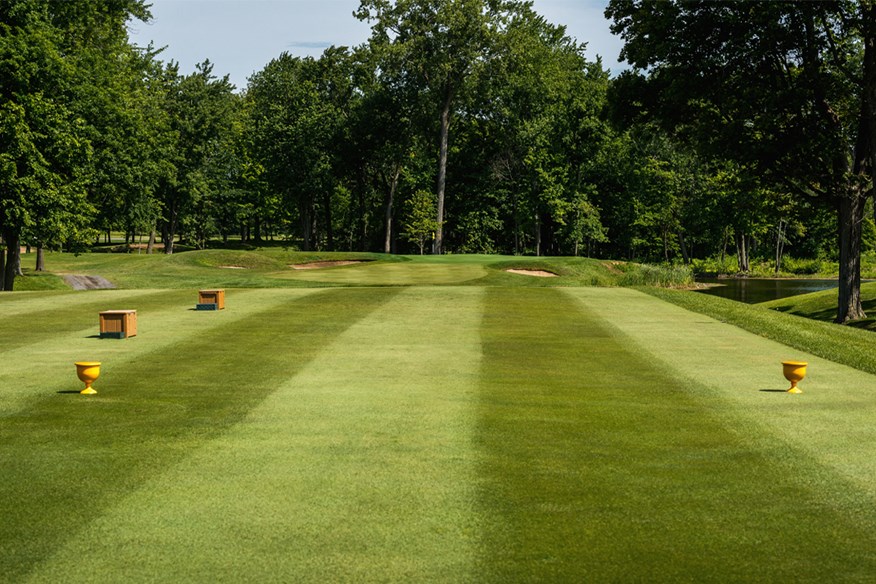I’m a tour golf expert and here are the three bets I’m placing on the Presidents Cup
Last updated:
Today’s Golfer tour columnist Matt Cooper previews the 2024 Presidents Cup and shares three selections he thinks are worth backing this week.
Ah, the Presidents Cup.
The consummate golfing example of a good idea in theory and a bad idea in practice. That, at least, is the easy conclusion to draw from the first three decades of its existence.
Cast your mind back to the hopes and dreams in the early 1990s when its creation appeared to be nothing less than a win-win situation. At that time the Americans were in a flap about the Ryder Cup. Having lost one and tied one of the 19 Ryder Cups since the end of the Second World War, Team USA had contrived to lose back-to-back in 1985 and 1987 before tying the 1989 match. On the course they rebounded with victories in 1991 (the spiteful War on the Shore) and 1993, but off the course they were determined to ensure the defeats would not last – and extra experience of team competition seemed to be the answer.
The second part of the win-win was for golfers who didn’t hail from the United States of America or Europe. Until 1983 there was nothing much about the notion of a biennial team match that would appeal to them but when it was transformed into one of sport’s greatest events it was easy to understand why they wanted some of the fun.
Alas, it’s never happened for either win-win. There have been 14 Ryder Cups since the Presidents Cup was inaugurated and the Americans have won only four of them. Meanwhile, the Internationals have discovered that the joy of the Ryder Cup is rather dependent on it being competitive.
Might this year be different? Maybe. Let’s take a closer look.
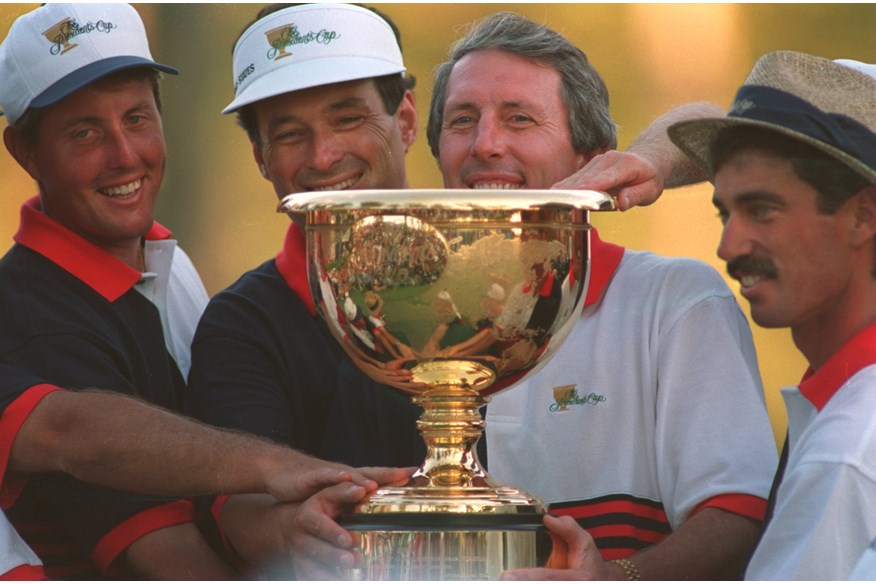
History
The first match was fun – it was bound to be, really – but it was a no-contest. The United States led 5-0 after the first session and victory was never in doubt. They won by eight points.
That introduction was, however, a little deceptive. The second match also got off to one-sided start but the Internationals fought back on the Saturday afternoon and eventually lost by just a point. The third encounter – the first to be hosted outside the USA – was an emphatic victory for the Internationals and, although they were thrashed when attempting to defend the trophy in 2000, they forced a tie in 2003.
Whereupon the traffic has been relentlessly one way. The USA arrives in Canada having won nine straight editions.
The format
The match is not quite the same as the Ryder Cup. For one thing, it lasts four, rather than three, days. There are five foursomes on Thursday and five fourballs on Friday. Saturday is a repeat of the first two sessions but squeezed into a day. Sunday sees all 12 team members play singles.
In a further distinction from the Ryder Cup, the captains don’t hand in their line-ups blind. Instead, they reveal them in what is called a snake format. The captain of the defending team announces his first foursomes pairing and then the other captain elects which of his partnerships will take them on before announcing his second duo. This alternating goes on throughout the week. It’s worth considering for punting purposes, even if a lot of guesswork is still required.
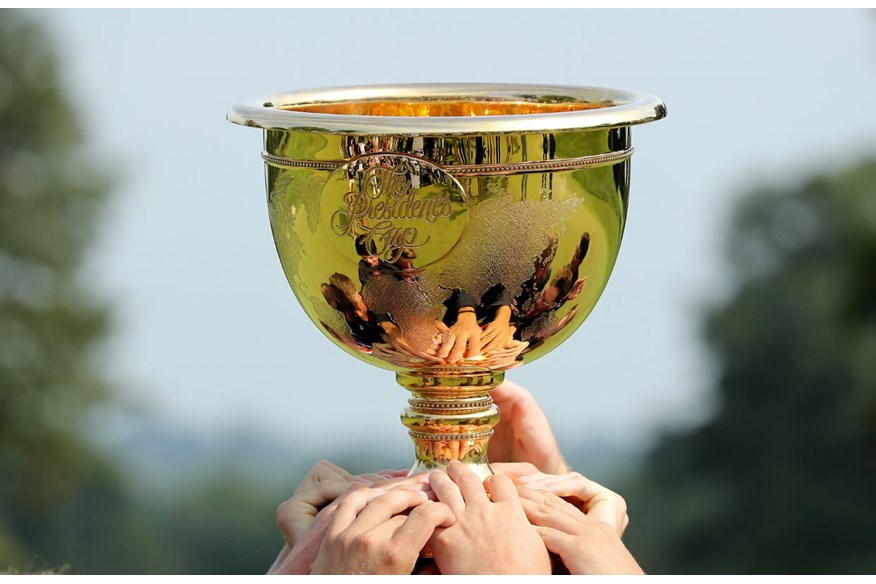
The captains
Jim Furyk has experience as a Team USA captain and it’s not great. He led his nation’s attempt to win the 2018 Ryder Cup in Paris when his line-up was widely praised as one of the finest of all-time and lost. His team liked him, though. For example, when asked why Thomas Bjorn was a better captain than Furyk, Rickie Fowler said: “He wasn’t.” But some speculated that Furyk was a little too cuddly with his players. He didn’t insist that they play the course before the match and he allowed them to be spooked by the set-up at Le Golf National. Since then he has been a vice-captain in the 2021 and 2023 Ryder Cups which has given him insight into both a winning and losing side.
The Internationals will be led by Mike Weir and, considering he played in five losing Presidents Cup teams, his own record was an exception: 13 wins, 9 losses, 2 halves. Moreover, when the match first went to Royal Montreal in 2007 he was in terrible form but rose to the occasion. He played in all five sessions, claiming three wins and a half – and one of those wins came in the singles against Tiger Woods.
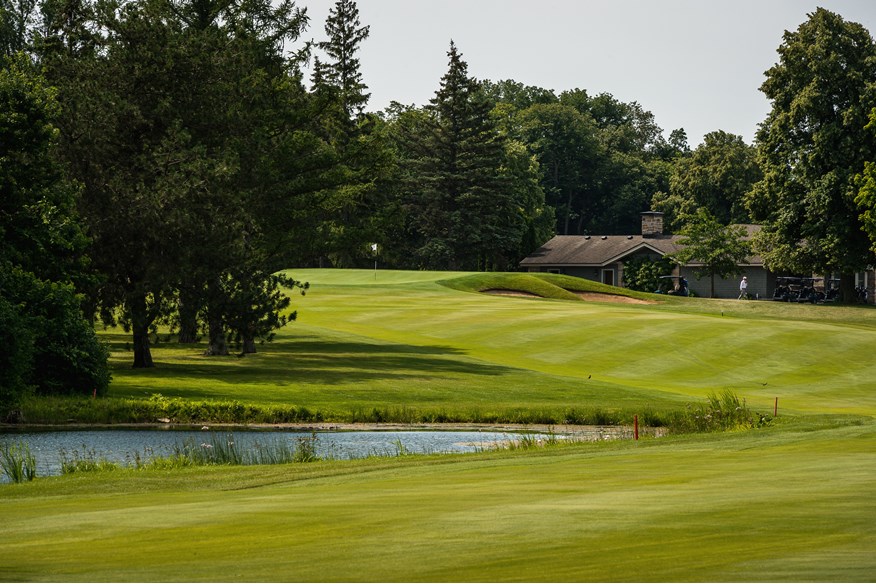
The course
Royal Montreal GC has a long history. In fact it is the oldest golf club in all of North America. It moved to its current site in 1959 and its Blue Course, designed by Dick Wilson, has hosted five Canadian Opens in addition to the 2007 edition of this match. The property is wooded. The front nine is the more tightly tree-lined, the back nine features ponds and water hazards. Wilson is also responsible for Bay Hill, the Blue Monster at Doral, Cog Hill, and La Costa which have all been regular PGA Tour stops.
Might we see a perfect partnership?
Remember the 2004 Ryder Cup when Hal Sutton paired Tiger Woods and Phil Mickelson? They were not the world’s top two ranked players at the time (they were second and fourth respectively) but in essence they were and Sutton was making a point. He was making a statement. Unfortunately for him it backfired horribly. The only statement he made was that he was a really bad captain.
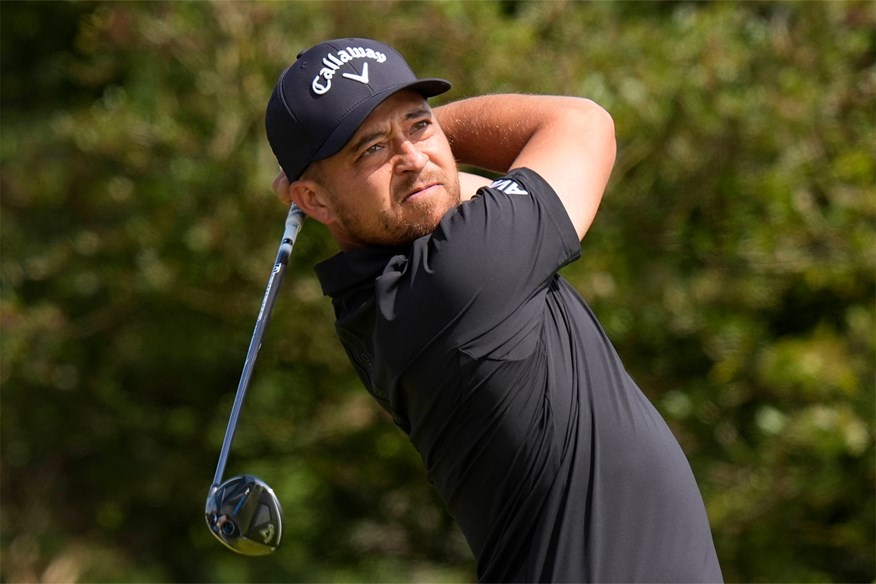
Could we see a repeat of some sorts in Canada? The Americans, after all, have both the world number one, Scottie Scheffler, and number two, Xander Schauffele, in their squad. Moreover, these two are completely different characters to Woods and Mickelson. That pair were alpha males whose success was based on letting everyone know how good they were. Their modern equivalents are more considered, less affected.
Although prompted by the press, who like the idea of a super pairing, Jim Furyk was having nothing of the idea at his wildcard press conference. “It’s not something I’ve looked into or thought about,” he said (or maybe fibbed?!). “But they’re both so easygoing, so calm and unflappable, you could pair them together. But I feel like why would you take the two best players in the world, put them together, when you can split them up and still have two amazing pairings, if that makes sense.” Good point, well made.
How the two teams stack up
Cup experience
This is just about the only angle that gives the International team an advantage. They have three players who have played more than two matches while the Americans have none. Adam Scott has played in 10 Cups and 49 matches. The latter figure is two more than the entire American line-up combined! (The flipside is that he experienced a tie on debut but has tasted nothing but defeat ever since.) In all, the International team has played 128 matches, the Americans 47.
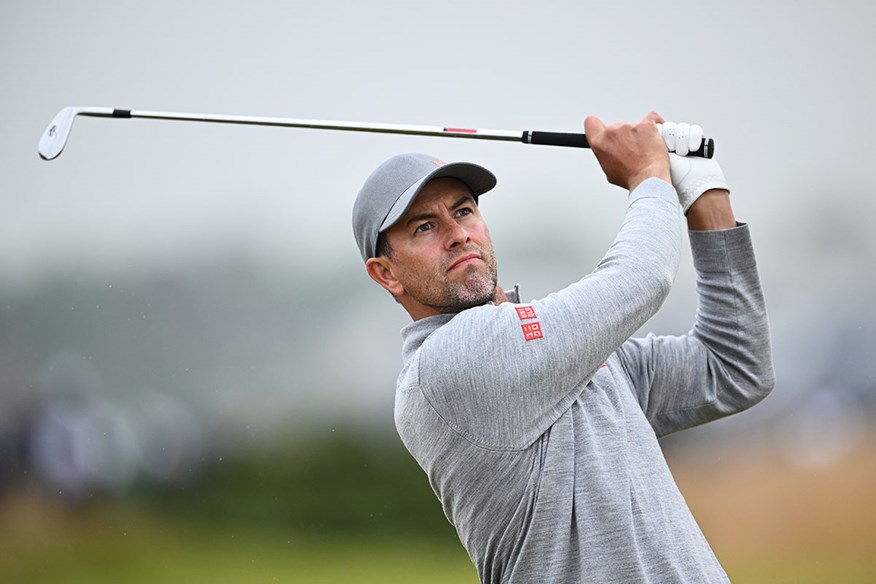
Cup records
It doesn’t need a lot of digging to start the process of the Americans holding the best cards. Five of its team has won 50% or more of the points it has played for and just two Internationals are in the same situation. Moreover, the Internationals might have have played more but that just means – like Scott – they have more experience of pain. The combined International record is 43-65-20 (41%) and the American is 23-17-7 (56%).
Major championship quality
The internationals have three major winners who have each won once (Scott, Hideki Matsuyama, Jason Day). The Americans have six majors winners. Three of them have won two majors (Scheffler, Schauffele, Collin Morikawa) and three have won one (Wyndham Clark, Brian Harman, Keegan Bradley). This year the Americans landed 15 major top 10 finishes including three wins, the Internationals just four top 10s. Add in last year too and the USA lead 27-8 with the win tally is 5-0.
World rankings
All 12 of the American team are ranked in the world’s top 30 but just four of the Internationals are. Five of the team rank outside the top 40 with Mackenzie Hughes the lowest ranking at 60th.
Can the Internationals win?
They need a lot to go right but if they did it could happen. Consider that two matches ago – the last “home” match – the Internationals led at the end of each of the first three days. That was the only time that they have led at the end of any of those three days since 2005!
Consider also the importance of an International captain leading on home soil. This is only the fourth time it has happened and the three previous occasions offer hope. In 1998 the Australian great Peter Thomson led the Internationals to victory at Royal Melbourne, in 2003 Gary Player guided them to a tie at Fancourt, and in 2011 Greg Norman oversaw a defeat back at Royal Melbourne. In other words, the two best performances by an International team came with a home captain.
If that is good news for Weir, so, too, is the fact that he has those astonishingly good memories of Royal Montreal in the Cup – and also that he has withstood the pressure of this match throughout his career.
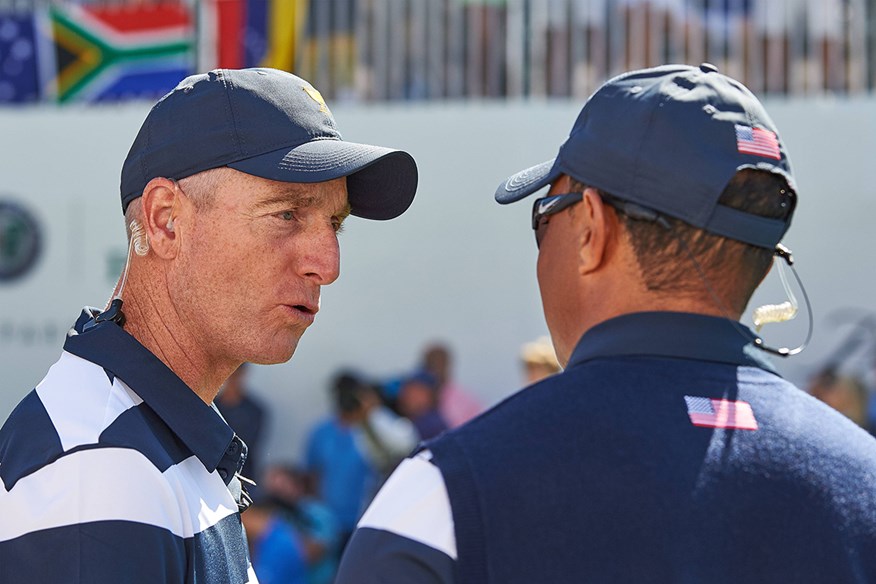
The final hope for the Internationals is the captaincy of Jim Furyk. And remember, in this instance we’re not predicting, but trying to foresee circumstances which could allow for a shock. If there was a repeat of Paris in 2018 it would help the home team and it has to be said that there is a certain hesitancy in the way he speaks of his captaincy and his picks. Lots of “I just think this” and “I just maybe think that”. It feels very cautious.
The Presidents Cup – our picks
Team USA to lead after day 1, 2 and 3 and win – 15/8 with Skybet
An International win would be wonderful for the event and the sport but it’s very tough ask and would only become attractive at about 9/2. It’s very hard to foresee a situation in which the Internationals don’t have two vulnerable pairings in any session. In seven of the last eight matches the United States have led after the first day, after the second day, after the third day and then won. That makes this price the pick.
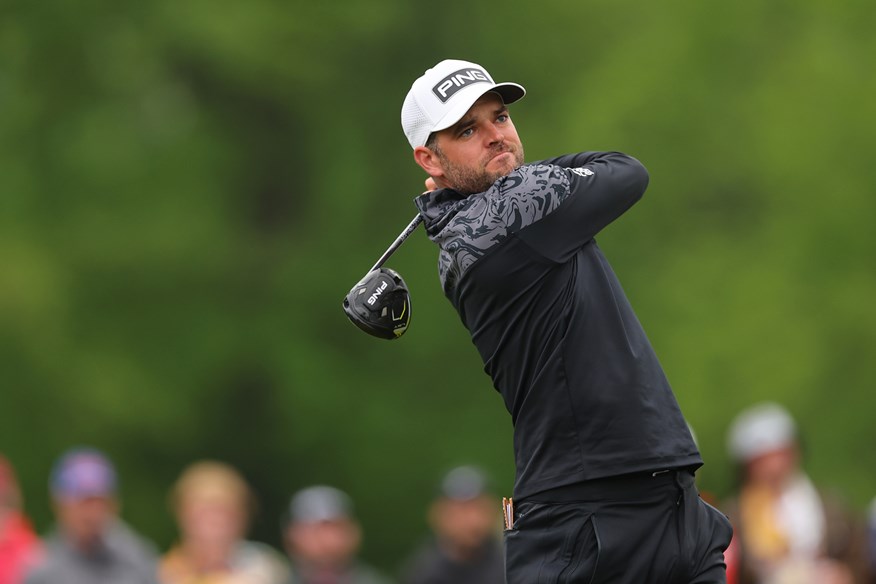
Top International points scorer – Corey Conners each way at 17/2 with Betway
There have been six Presidents Cups that have been International “home” matches and the “home” players have performed well in them. In 1998 at Royal Melbourne Aussie Steve Elkington won four points to be the team’s second top scorer. Five years later in South Africa the home hero Ernie Els top scored. Four years after that Weir top scored at Royal Montreal. Back at Royal Melbourne in 2011 Geoff Ogilvy was the joint top scorer. In 2015 the match went to South Korea and the home contingent wasn’t too strong but Sang Moon Bae was the third top scorer. In 2019, back in Australia, Adam Scott was joint third top scorer.
Let’s stick with this theme. We want a Canadian. We want one who will be excited by the occasion. Who will thrive under pressure. Who is likely to get at least four matches. Corey Conners is probably the class act, Taylor Pendrith has a poor home record, Mackenzie Hughes is least likely to play at least four times. Conners is consistent, has three Masters top 10s and his captain said: “I truly believe Corey’s going to play well with the home crowd. I think he’s going to be a big part of our team.” He’s the pick.
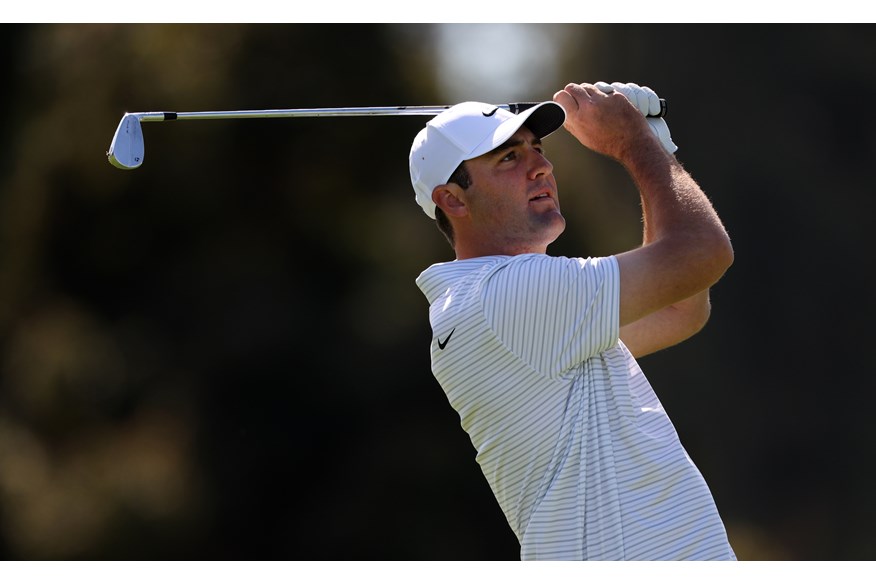
Top points scorer – Scottie Scheffler each way at 15/2 with Skybet
Let’s take the contrarian view. Can the world number one really play three poor team matches in a row?! There’s a good chance we’re getting a slightly bigger price than we might expect for a player of his quality off the back of those two performances and the feeling that this is not a normal event. Remember how good he has been at match play in the old WGC event (a winner and a runner-up). It’s worth adding that if you feel confident that Max Homa can a) be revived by the format, and b) get picked often enough, then he could be worth backing. But you’ve got to believe that he can maintain an extremely high point conversion rate which very few golfers have ever done.
